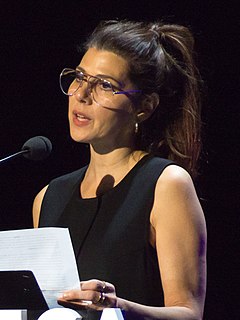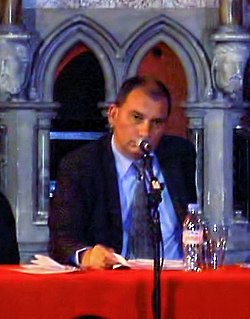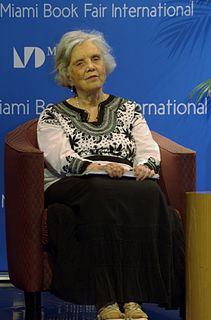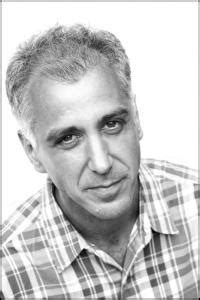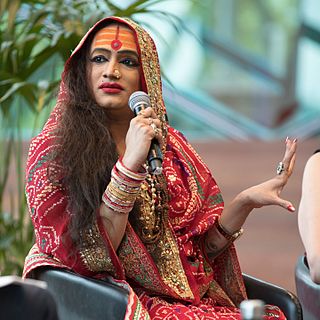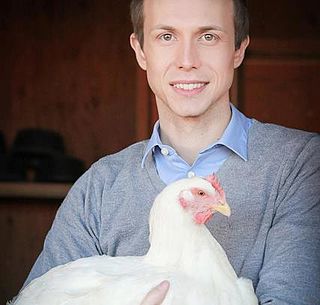Top 394 Activism Quotes & Sayings - Page 7
Explore popular Activism quotes.
Last updated on April 20, 2025.
The New Deal never rethought the draconian racist immigration restriction policies of the 20s, of course, but its electoral base rested significantly on "ethnic" voters, whose activism was both hemmed in and rewarded by the Democrats. Southern and Eastern Europeans were included as secondary leaders of the new industrial unions, and as entitled citizens qualified for social security, unemployment compensation, and fair labor standards protections, even as workers of color were largely left out of key areas of the welfare state.
Photography can still be used to champion activism and change. I believe this, even while standing in the cool winds of postmodernism... Postmodernism looked radical, but it wasn't. As a movement it was profoundly liberal and became a victim of itself. Precisely at this historical moment, when multicultural democracy is the order of the day, photography can be used as a powerful weapon toward instituting political and cultural change. I for one will continue to work toward this end.
Students typically are at a period of their lives when they're more free than at any other time. They're out of parental control. They're not yet burdened by the needs of trying to put food on the table in a pretty repressive environment, often, and they're free to explore, to create, to invent, to act, and to organize. Over and over through the years, student activism has been extremely significant in initiating and galvanizing major changes. I don't see any reason for that to change.
Films can't change the society, they can simply open the space for the discussion which can lead to social change and can start new forms of social activism. I feel formally that I've scratched the surface of something very important about the nature of nonfiction film, about what we're very rarely honest about: When you film anybody, they start performing.
The Organization of Afro-American Unity was an organization that was a secular group. It largely consisted of people that we would later call several years later Black Powerites, Black nationalists, progressives coming out of the Black freedom struggle, the northern students' movement, people - students, young people, professionals, workers, who were dedicated to Black activism and militancy, but outside of the context of Islam.
Activism spawned by Sanders campaign is beginning to make inroads into electoral politics. Under Barack Obama, the Democratic Party pretty much collapsed at the crucial local and state levels, but it can be rebuilt and turned into a progressive force. That would mean reviving the New Deal legacy and moving well beyond, instead of abandoning, the working class and turning into Clintonite New Democrats, which more or less resemble what used to be called moderate Republicans, a category that has largely disappeared with the shift of both parties to the right during the neoliberal period.
I remember at the time - right before we started Feministing.com - doing a Google search for the term "young feminism" and the term "young feminist," and the first thing that came up was a page from the National Organization for Women that was about 10 or 15 years old. And it just struck me as so odd that there was all of this young feminist activism going on, but that it wasn't necessarily being represented online, that the first things in a Google search to come up were really, really old. I think to a certain degree we really filled a gap, and that's why we got such a large readership.
Khairani Barokka is a writer, spoken-word poet, visual artist and performer whose work has a strong vein of activism, particularly around disability, but also how this intersects with, for example, issues of gender - she's campaigned for reproductive rights in her native Indonesian, and is currently studying for a PhD in disability and visual cultures at Goldsmiths. She's written a feminist, environmentalist, anti-colonialist narrative poem, with tactile artwork and a Braille translation. How could I not publish that?
Those stories weren't being written at all - stories about women's inner lives and outer activism. We've come miles and miles, but we still don't have an equal rights amendment yet. We don't have equal pay yet. There's a lot of blind misogyny that's not personal, but institutionalized. We still have work to do, but even just looking at those old Ms. Magazines is a cool thing to do - to see how daring they were. They just went right into the belly of the beast.
If you can shape your business life or your working life, you can just look at it as another extension - you just fulfill all your values as a human being in the work place. If you are an activist, you bring the activism of your life into your business, or if you love creative art, you can bring that in.
One should be cautious about "general conceptions." I think a strong case can be made that activism today is as high as ever, perhaps more so, and is also taking new and significant forms. There has never been anything like the international solidarity movements that began to take shape in the 1980s, right in the mainstream, or the global justice movements that have become a very powerful force in later years. It's true that the society is highly atomized, which does induce a sense of hopelessness often - quite mistakenly I think.
I want to make activism a bigger part of my life, while hopefully maintaining the opportunity to help out causes that I really care about. And being an actor allows me to do that. Shooting a Cisco commercial allows me to do that. I mean, doing all these things allows me to talk about these issues. But don't think there aren't those moments where I'm like, "What am I doing? I have to quit my job and chain myself to a tree." Believe me, I have those moments.
I think it is effective when activists work from the margins, and I think that's the best way to go about it. And I do think that it's increasingly being more effective with the work that's being done online, that it is a bit more democratized, that whatever kind of activism is being done, it's not necessarily coming from one centralized place.
[On the Internet and activism:] The danger of the Internet is cocooning with the like-minded online - of sending an email or twitter and confusing that with action - while the real corporate and military and government centers of power go right on. In a way, the highest purpose of the Internet is to bring us together for empathy and action. After all, the reflector cells and empathy-producing chemicals in our brains only work when we're physically together with all five senses. You can't raise a baby online.
The domestic NSA-led Surveillance State which Frank Church so stridently warned about has obviously come to fruition. The way to avoid its grip is simply to acquiesce to the nation's most powerful factions, to obediently remain within the permitted boundaries of political discourse and activism. Accepting that bargain enables one to maintain the delusion of freedom - "he who does not move does not notice his chains," observed Rosa Luxemburg - but the true measure of political liberty is whether one is free to make a different choice.
London is one of the world's centres of Arab journalism and political activism. The failure of left and right, the establishment and its opposition, to mount principled arguments against clerical reaction has had global ramifications. Ideas minted in Britain – the notion that it is bigoted to oppose bigotry; 'Islamophobic' to oppose clerics whose first desire is to oppress Muslims – swirl out through the press and the net to lands where they can do real harm.
I live to the rhythm of my country and I cannot remain on the sidelines. I want to be here. I want to be part of it. I want to be a witness. I want to walk arm in arm with it. I want to hear it more and more, to cradle it, to carry it like a medal on my chest. Activism is a constant element in my life, even though afterwards I anguish over not having written 'my own things.' Testimonial literature provides evidence of events that people would like to hide, denounces and therefore is political and part of a country in which everything remains to be done and documented.
As far as nonviolence and Spiritual Activism, Marshall Rosenberg is it! Nonviolent Communication: A Language of Life, is essential reading for anyone who wants to improve their communication skills. Applying the concepts within the book will help guide the reader towards a more loving, compassionate, and nonviolent way of understanding and functioning with others, and foster more compassion in the world. I highly recommend this book.
It makes me so angry when people say, "We never hear from people who are happy doing sex work." Well, that's because they're working. The activism privileges people who hated doing sex work, are no longer doing it, and have a job at a social service organization, for example, that trains them on how to speak to the media. We are hearing from those people quite a bit.
The [Booker] prize was actually responsible in many ways for my political activism. I won this thing and I was suddenly the darling of the new emerging Indian middle class – they needed a princess. They had the wrong woman. I had this light shining on me at the time, and I knew that I had the stage to say something about what was happening in my country. What is exciting about what I have done since is that writing has become a weapon, some kind of ammunition.
It's not like activist work is a nice add-on to what's really important, the spiritual work. The two are inseparable and it goes both ways. Many people are hardcore activists for decades, and they encounter burnout, futility, or a feeling of imbalance. Sometimes they need to go so far as to drop their activism and go on a spiritual journey. They're realizing that all the stuff they're trying to change in the world isn't just out there in the world. It's in them, too. And as long as they're blind to what's in them, they're going to continually re-create it in all that they do.
Often people who already had an interest in human rights work. What I did notice with all of them, even the people who professed to be interested in human rights, was that activism was somewhat a concept in their mind - a symbolic flag on the quad or something to show how many people were starving in the world. But once they saw their efforts connected to a person, I did see a change.
We have to create conditions where people feel safe to feel and to care. That goes against a lot of our programming about how to make something change in the world. Sometimes you can pressure people into changing, you can force them, but the powers-that-be have more force than we do. I don't think we're going to win in a contest of force. I think we need to induce a change of heart. The narrative of "us versus them" is ultimately part of the problem. Traditional activism, which is about overcoming the latest bad guy, isn't deep enough. It just brings us another version of the same.
It has become a common feeling, I believe, as we have watched our heroes falling over the years, that our own small stone of activism, which might not seem to measure up to the rugged boulders of heroism we have so admired, is a paltry offering toward the building of an edifice of hope. Many who believe this choose to withhold their offerings out of shame. This is the tragedy of the world. For we can do nothing substantial toward changing our course on the planet, a destructive one, without rousing ourselves, individual by individual, and bringing our small, imperfect stones to the pile.
We need to reshape the movement as one of grassroots activists, and not 'professional activists' who populate the seemingly endless number of national animal rights groups. For many people, activism has become writing a check to a national group that is very pleased to have you leave it to them. Although it is important to give financial support to worthy efforts only, giving money is not enough and giving to the wrong groups can actually do more harm than good.
I think it needs to be with a heart-based wisdom and this heart-based wisdom needs to go hand in hand with science and with social activism and love for our planet and love for our whole human family that spans the whole globe and this may sound very high and mighty or airy-fairy, but it's going to have to go to that or else we're just all going to destroy each other.
I think more and more foundations are putting resources into food activism. But I think that given the state of the economy, foundations won't be giving as much in general. For me it's about working with these existing institutions in communities that people already go to, that people trust, that they know, and determining how best they can play a role in the creation of local food systems and address the ills that are right around them in the community.
When we, hijras, started our activism, we had to tell people, "We exist, we are humans. Please give us nothing but our basic dignity." The biggest misery in the world, I believe, is the feeling of being unloved, and that this community faces a lot. You're not even considered to be human. You're considered transparent. We were ignored until we started organizing, when HIV first became a factor. Even in the HIV world, people could not believe that hijras have sex. And then also we were put in the category of men having sex with men, the gay community.
The fact is that there's hundreds of thousands of incredibly motivated, active political partisans working on the blogs. These people generate buzz, it generates local activism. These aren't the kind of people that pay attention a little to politics, turn it off and then do something else. They live and breathe politics. And anybody that wants to build a movement or a successful campaign needs people like the people who read blogs.
It seems that's where Bill Clinton came in last night because he told this long story about how they met [with Hillary Clinton], how he courted her, how he bought a house to convince her, I think after the third proposal, to actually marry him. And he talked about her activism and her commitment and everything. And it was as if he could tell the narrative in a way that she couldn't.
Sometimes that irrational commitment to principle is what society needs to survive. Whenever you talk about radicalism, whenever you talk about activism, whenever you talk about progressive activity, that sort of moves the measure of liberty in human society forward, makes us all enjoy a better standard of liberty, it typically starts out criminal. It typically starts out a little bit shaky, and rather radical. And that's irrational to put yourself up to do that.
My idea of what was going on in politics was driven by activism. I came out when I was 17, and right away I started working in the AIDS activist movement. For me, politics was about getting drugs approved and getting prisoners access to the same kind of drugs that you could get on the outside. It was about getting needle exchanges approved. That was politics. These were policy problems that were killing people, and we were trying to get them changed.
I've always had a really developed sense of justice. As a child, I would rotate my dolls' dresses for fear that they might come alive at midnight and one of them would always have the best dress on. Whatever it was that made me worry about my dolls I suppose has paid off in my career because, really, an actor is all about empathy and imagination. And those are the cornerstones of activism.
Stay positive, joyful, and optimistic in your activism, even in the face of adversity. Understand that most people continue to consume animal products because they are unaware of the hidden cost - animal cruelty - not because they are bad or apathetic. Offer information, support, and resources in a friendly and supportive manner, as few people have begun their journey toward a compassionate lifestyle by being shamed or ridiculed. Turn anger and frustration into motivation to be as effective as possible.







